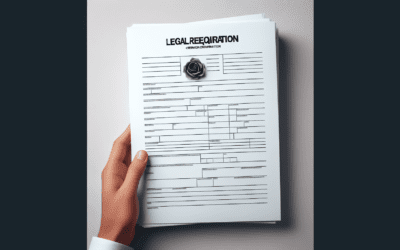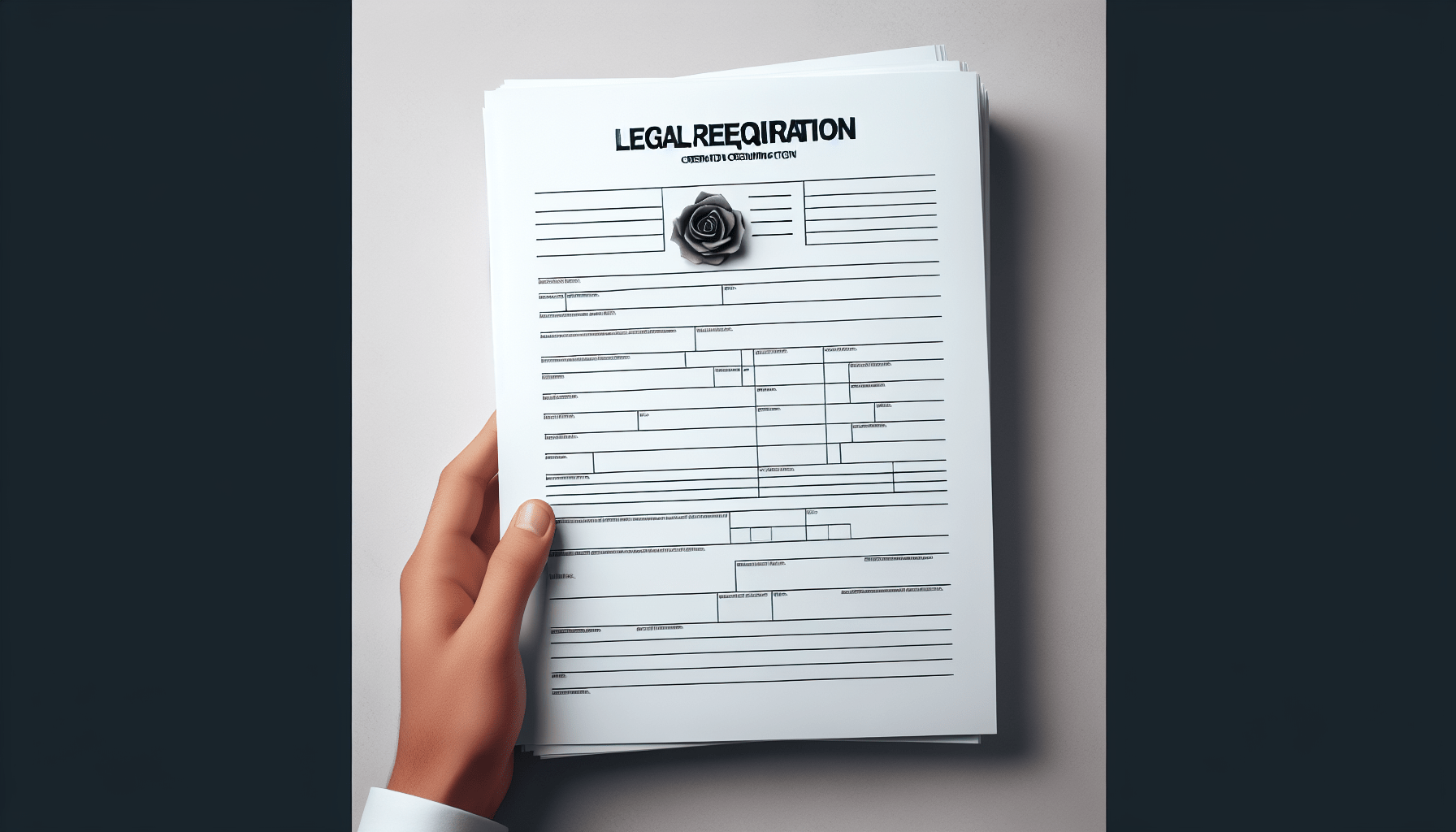Did you know that in Atlanta, you have the option of conducting a funeral right in the comfort of your own home? Yes, that’s right! Home funerals, also known as family-led or DIY funerals, are becoming an increasingly popular alternative to traditional funeral services. But you may be wondering, are home funerals even legal in Atlanta? Well, we’re here to tell you that they are indeed legal, and in this article, we will explore the regulations and requirements surrounding home funerals in Atlanta. So, if you’ve ever considered a more intimate and personalized farewell for your loved one, keep reading to find out how you can navigate the legal aspects of home funerals in Atlanta.
Legal Requirements for Home Funerals in Atlanta
Permitting and Licensing for Home Funerals
If you are considering a home funeral in Atlanta, it is important to understand the permitting and licensing requirements involved. While home funerals are allowed in Georgia, there are certain regulations that must be followed to ensure compliance with the law.
To begin with, it is essential to obtain a burial transit permit from the Georgia Department of Public Health before transporting the deceased. This permit authorizes the transportation of the body and is required for both in-state and out-of-state transport. Additionally, you may need to obtain a burial permit from the local registrar of the county where the death occurred. These permits are necessary to legally bury or cremate the deceased.
Role of Funeral Directors in Home Funerals
While funeral directors are not required by law to be involved in home funerals in Atlanta, their expertise can provide invaluable guidance during this difficult time. Funeral directors are well-versed in the legal requirements and procedures surrounding funerals and can assist with obtaining the necessary permits and licenses.
Furthermore, funeral directors can provide support and advice on handling and preparing the deceased. They can help with embalming, if desired, or provide information on non-embalming options. Funeral directors can also offer assistance in arranging transportation of the deceased and organizing any viewings or ceremonies that may be held at home.
Transportation and Disposition of the Deceased
Transportation of the deceased is an important aspect of home funerals that must be carried out in accordance with state and local regulations. If you choose to transport the body yourself, it is crucial to follow the laws governing the transportation of human remains.
In Atlanta, the Department of Motor Vehicles regulates the transportation of human remains. You may need to obtain a special permit or use a licensed funeral establishment to transport the deceased. It is advisable to contact the Department of Motor Vehicles or consult with a funeral director to ensure compliance with the transportation regulations.
After transportation, the disposition of the deceased can take various forms, including burial or cremation. If you plan to bury the body on private property, it is essential to check with local zoning laws and obtain any necessary permits. Alternatively, you may choose to have the body cremated, in which case you should ensure the selected crematory is licensed and compliant with the applicable regulations.
The Georgia Funeral Services Act
Understanding the Funeral Services Act
The Georgia Funeral Services Act outlines the legal requirements for all funeral-related activities in the state, including home funerals. It is essential to familiarize yourself with this act to ensure compliance and avoid any legal repercussions.
Under the Funeral Services Act, it is stated that the family or designated individuals have the right to control the disposition of the deceased. However, certain conditions must be met for home funerals to be carried out legally.
Requirements for Home Funerals under the Act
To comply with the Funeral Services Act in Atlanta, there are several requirements that must be fulfilled for a home funeral. These include obtaining the necessary permits and licenses, ensuring proper transportation of the body, and following any regulations related to burial or cremation.
Additionally, the Funeral Services Act mandates that the body of the deceased must be properly prepared and cared for. This includes the option of embalming, if desired, or alternative methods of preservation. Funeral directors can provide guidance on these matters and ensure compliance with the act.
Penalties for Non-compliance
Non-compliance with the Georgia Funeral Services Act can lead to penalties and legal consequences. It is important to adhere to all the regulations outlined in the act to avoid any potential issues. By staying informed and following the necessary steps, you can ensure that the home funeral is conducted lawfully and with respect for the deceased.
Obtaining a Death Certificate
Process of Obtaining a Death Certificate in Atlanta
Obtaining a death certificate is a crucial step in arranging a home funeral in Atlanta. This official document serves as proof of the individual’s death and is required for various legal purposes, such as settling the deceased’s estate.
To obtain a death certificate, you need to contact the Vital Records Office of the Georgia Department of Public Health. They will provide the necessary forms and instructions to complete the process. It is important to provide accurate and detailed information to ensure the accuracy of the death certificate.
Once the forms are completed, they need to be submitted along with any required fees. The Vital Records Office will review the application and, upon approval, issue the death certificate. This document will enable you to proceed with the necessary arrangements for the home funeral.
Handling and Preparing the Deceased
Care and Preservation of the Body
Caring for the body of the deceased is an important aspect of a home funeral. It is essential to ensure that the body is properly preserved and handled with respect.
Funeral directors can offer guidance on how to care for the body and preserve it, considering factors such as temperature and time. They can recommend appropriate methods of body preparation and preservation, which may include embalming or refrigeration.
If you choose not to embalm, it is important to keep the body in a cool environment to slow down the natural decomposition process. This can be achieved by using ice packs or employing a cooling system designed for this purpose.
Embalming and Non-embalming Options
Embalming is a common practice in traditional funerals but is not required by law for home funerals in Atlanta. Embalming involves the use of chemicals to preserve the body and delay decomposition. It can also enhance the appearance for open-casket viewings.
However, if you prefer not to embalm, there are alternative options available. Non-embalming techniques, such as refrigeration or dry ice, can effectively slow down the natural decomposition process for a short period. Funeral directors can provide guidance on the most suitable method based on the specific circumstances.
Use of a Funeral Home for Preparation
While home funerals allow for care and preparation of the deceased within the home, some families may choose to use a funeral home for certain aspects of the process. This can include professional embalming, if desired, or access to specialized facilities and equipment.
Funeral homes can provide the necessary facilities for body preparation, such as an embalming room or refrigeration units. They can also offer guidance and support throughout the process, ensuring that all legal requirements are met.
Choosing to involve a funeral home does not negate the option of a home funeral; it simply provides additional resources and expertise to ensure the proper handling and preparation of the deceased.
Transportation of the Deceased
Responsibilities and Regulations for Transporting the Deceased
Transporting the deceased is a critical aspect of a home funeral. In Atlanta, there are responsibilities and regulations in place to ensure the safe and respectful transportation of the deceased.
If you plan to transport the body yourself, it is crucial to comply with the regulations set forth by the Department of Motor Vehicles. You may need to obtain a special permit or use a licensed funeral establishment for transportation. It is advisable to contact the Department of Motor Vehicles or consult with a funeral director to ensure compliance with these regulations.
Another important responsibility when transporting the deceased is to ensure that the body is properly secured and protected during the journey. This can include using a suitable transport container or casket and ensuring that the vehicle used is appropriate for this purpose.
Options for Transportation
When it comes to transporting the deceased, there are several options available. Families can choose to transport the body themselves, using a personal vehicle or rental vehicle, as long as they comply with the necessary regulations.
Alternatively, families may opt to hire a professional transportation service. These services are equipped to handle the transportation of human remains and can provide a secure and respectful journey for the deceased.
Choosing the most suitable transportation option depends on various factors, including the distance to be traveled, the family’s preferences, and the resources available. Funeral directors can provide guidance and assist in making the appropriate arrangements for transportation.
Viewing and Ceremony
Holding a Viewing at Home
A home funeral can offer a more intimate and personal setting for a viewing of the deceased. This allows family and loved ones to pay their respects and say their final goodbyes in the comfort of their own surroundings.
To hold a viewing at home, it is important to create an appropriate environment. This may involve setting up a designated area where the body can be placed, surrounded by meaningful items or photographs. It is helpful to follow any religious or cultural practices that are significant to the deceased and their loved ones.
Additionally, it is crucial to consider the logistics of hosting a viewing at home. This includes ensuring there is ample space for guests, arranging seating, and providing any necessary amenities such as restroom facilities. Organizing these details in advance can help create a comfortable and respectful environment for those attending the viewing.
Organizing a Funeral Ceremony at Home
In addition to a viewing, families may choose to hold a funeral ceremony at home as part of a home funeral. This allows for a personalized and meaningful tribute to the deceased, where family and friends can come together to honor and remember their loved one.
When organizing a funeral ceremony at home, it is important to plan and coordinate various aspects of the event. This can include the selection of readings or speeches, the choice of music or hymns, and any rituals or customs specific to the family or religious beliefs.
It is also essential to ensure that there is adequate space for the ceremony, taking into consideration the number of attendees and any seating arrangements. Creating a thoughtful and comforting atmosphere can help facilitate a meaningful and healing experience for all who attend.
Legal Considerations for Public Gatherings
When hosting a home funeral, it is essential to be aware of any legal considerations surrounding public gatherings. Depending on local ordinances and zoning laws, there may be restrictions on the number of attendees, the duration of the event, or other regulations that must be followed.
It is advisable to consult with local authorities or a funeral director to understand and comply with any legal requirements related to public gatherings. By doing so, you can ensure that the home funeral proceeds smoothly and in accordance with the law.
Burial Options for Home Funerals
Understanding Burial Laws in Atlanta
Home funerals provide families with the opportunity to choose the burial option that aligns with their wishes and beliefs. When considering a burial for a home funeral in Atlanta, it is important to understand the burial laws and regulations that apply.
In Georgia, the law allows for burials on private property, as long as certain conditions are met. These conditions can include obtaining the necessary permits, following any local zoning laws, and ensuring the burial site meets specific requirements.
Private Burials on Private Property
Private burials on private property offer families a deeply personal and meaningful way to lay their loved one to rest. If you choose this option, it is crucial to check with local zoning laws and obtain any required permits.
Additionally, there may be specific requirements for the burial site. These can include setback distances from property lines, restrictions on the depth of the grave, and mandatory use of burial vaults or containers. Familiarizing yourself with these requirements and fulfilling them is essential to ensure compliance with the law.
Alternatives to Burial
While burial is a traditional choice for many families, there are alternatives available for those who may prefer a different approach. Cremation, for example, offers an alternative to burial and can be carried out as part of a home funeral.
Cremation involves the process of reducing the body to ashes through high temperatures. Families can choose to keep the ashes in an urn, scatter them in a meaningful location, or conduct a separate memorial service after the cremation.
If cremation is chosen, it is important to select a licensed crematory that follows the necessary regulations. Funeral directors can provide guidance on reputable crematories and assist with making the necessary arrangements.
Considerations and Limitations
Religious and Cultural Factors
When planning a home funeral, it is vital to consider any religious or cultural factors that may influence the proceedings. Different faiths and cultures have unique beliefs and practices surrounding death and funerals.
For example, some religions may have specific guidelines for the preparation and handling of the deceased. Others may have rituals or ceremonies that should be incorporated into the home funeral. By respecting and honoring these religious and cultural factors, families can create a truly meaningful and inclusive experience.
Local Ordinances and Zoning Laws
Local ordinances and zoning laws can impact the feasibility and legality of home funerals in Atlanta. These regulations may vary from one jurisdiction to another, so it is essential to research and comply with the specific requirements of the local area.
Certain zoning laws may govern the use of private property for burial, dictate setback distances, or impose other restrictions. In addition, local ordinances may limit the number of attendees at a home funeral or regulate the duration of the event. Being aware of these regulations and adhering to them is necessary to avoid any potential legal issues.
Accessibility of Cemetery Spaces
In some cases, families may prefer to bury their loved one in a cemetery rather than on private property. However, it is important to consider the accessibility of cemetery spaces when planning a home funeral.
Cemeteries may have specific regulations regarding burial plots, fees, and maintenance. It is essential to research and communicate with the chosen cemetery to ensure they can accommodate the specific burial preferences and meet any necessary requirements.
The Importance of Advance Planning
Documentation and Communication
Advance planning plays a crucial role in ensuring a smooth and legally compliant home funeral. Documenting your wishes in advance and communicating them with your loved ones can alleviate stress and confusion during a difficult time.
Creating a comprehensive plan that outlines your funeral preferences, including your desired funeral home, burial or cremation options, and any specific rituals or traditions, can provide clarity and guidance to your loved ones. Sharing this plan with them and keeping a copy in a safe place can ensure that your wishes are respected and followed.
Discussing Home Funeral Wishes with Loved Ones
It is important to have open and honest discussions with your loved ones about your home funeral wishes. By sharing your desires and intentions, you empower them to carry out your wishes and make informed decisions on your behalf.
Having these conversations in advance allows for any questions or concerns to be addressed, ensuring a shared understanding and agreement on how the home funeral should be conducted. It also provides an opportunity to discuss any legal requirements and obligations that may arise during the process.
Alternative Funeral Arrangements
While home funerals can be a meaningful and personal way to say goodbye to a loved one, they may not be suitable for everyone. Recognizing the needs and preferences of your family members is essential when making funeral arrangements.
If a home funeral is not a feasible option, there are alternative arrangements available. Funeral homes can assist in organizing traditional funeral services, complete with visitation, ceremony, and burial or cremation. They can guide you through the entire process, from obtaining the necessary permits to coordinating all aspects of the funeral.
It is important to remember that the most essential aspect of any funeral is to honor the memory and celebrate the life of the deceased. Whether it is a home funeral or an alternative arrangement, the focus should be on creating a meaningful and healing experience for all involved.
Conclusion
In conclusion, home funerals are legal in Atlanta, but there are specific legal requirements and regulations that must be followed. By understanding and adhering to these requirements, families can conduct a home funeral that is both personal and legally compliant.
From permitting and licensing to the transportation and disposition of the deceased, there are several important aspects to consider. The Georgia Funeral Services Act outlines the legal framework for home funerals in the state, and non-compliance can lead to penalties.
Obtaining a death certificate, handling and preparing the deceased, and organizing viewings and ceremonies are all integral parts of a home funeral. Families should also be aware of burial options, local ordinances, and zoning laws that may impact the funeral arrangements.
Advance planning, documentation, and communication with loved ones are vital in ensuring a smooth home funeral. If a home funeral is not feasible, alternative arrangements can be made with the assistance of funeral directors.
Ultimately, a home funeral should be a meaningful and healing experience that honors the memory of the deceased. By being aware of the legal requirements and considerations, families can create a loving and respectful farewell for their loved ones in the comfort of their own home.








0 Comments